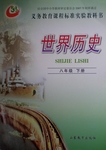题目内容
"Does Tom _______ an eraser? " " No. He ______have one. "
A. have , don't B. have,doesn't C.has,don't D. has,doesn't
B

练习册系列答案
 探究与巩固河南科学技术出版社系列答案
探究与巩固河南科学技术出版社系列答案
相关题目
题目内容
"Does Tom _______ an eraser? " " No. He ______have one. "
A. have , don't B. have,doesn't C.has,don't D. has,doesn't
B

 探究与巩固河南科学技术出版社系列答案
探究与巩固河南科学技术出版社系列答案